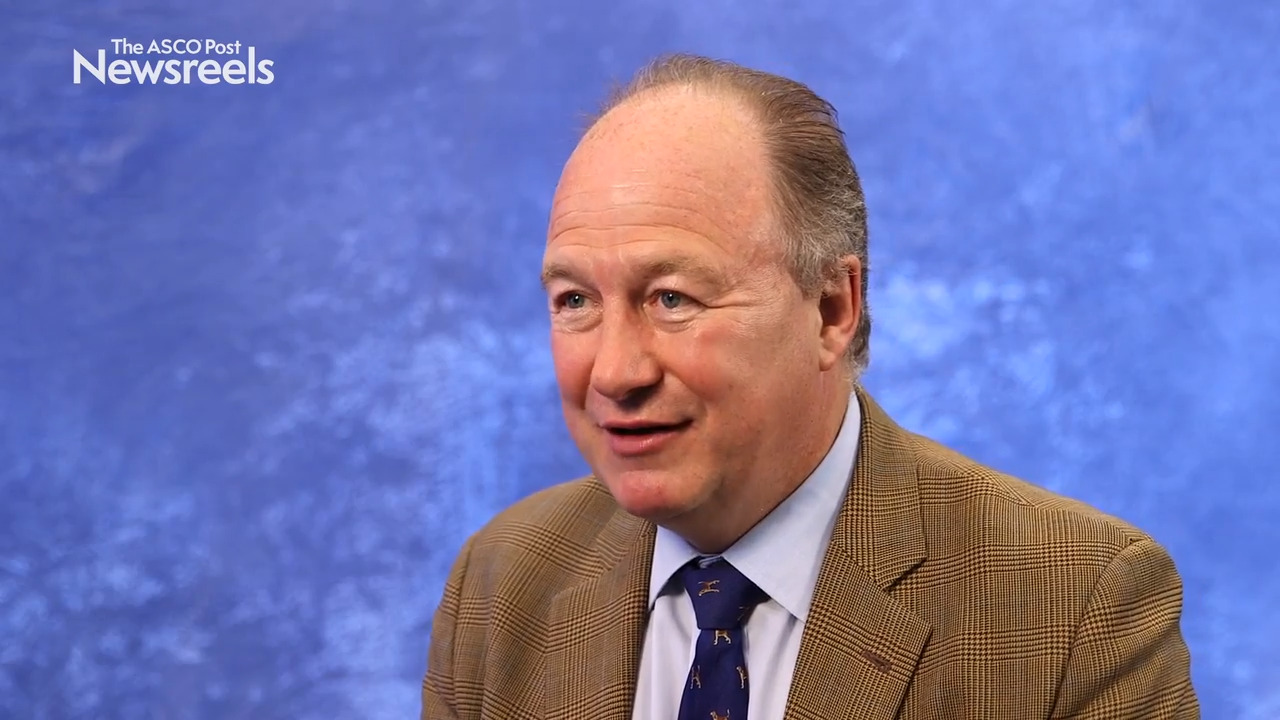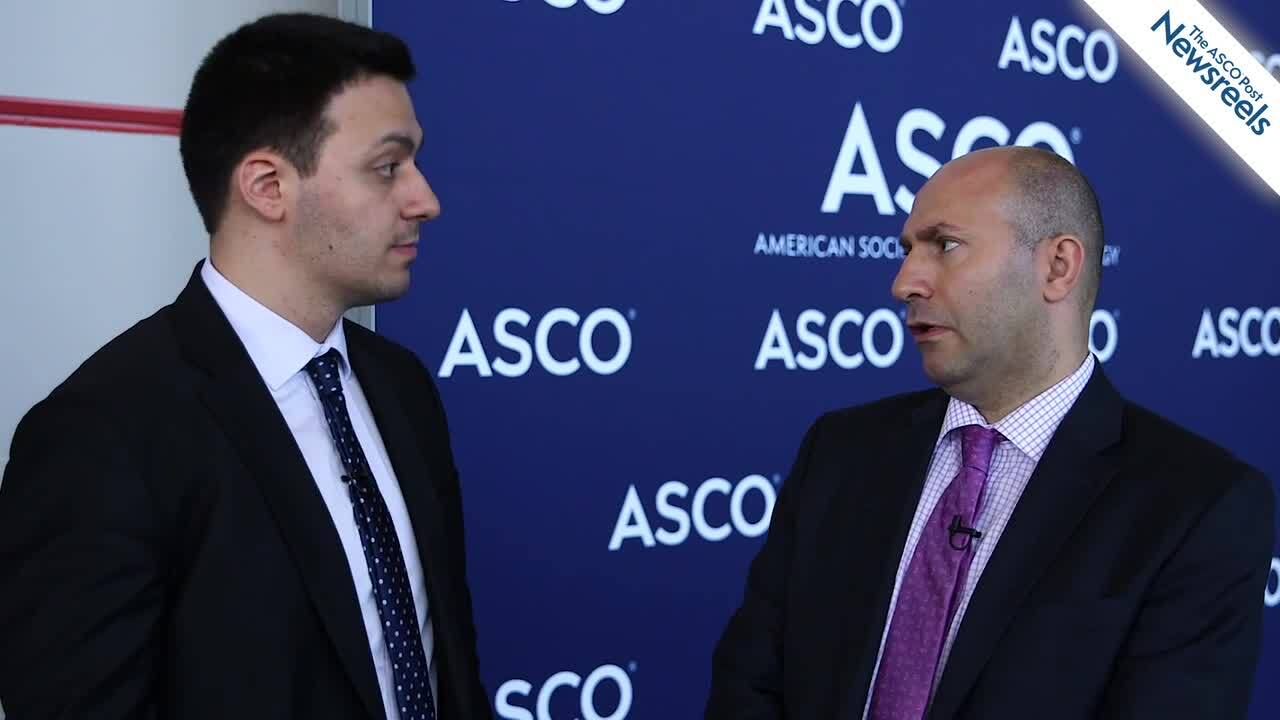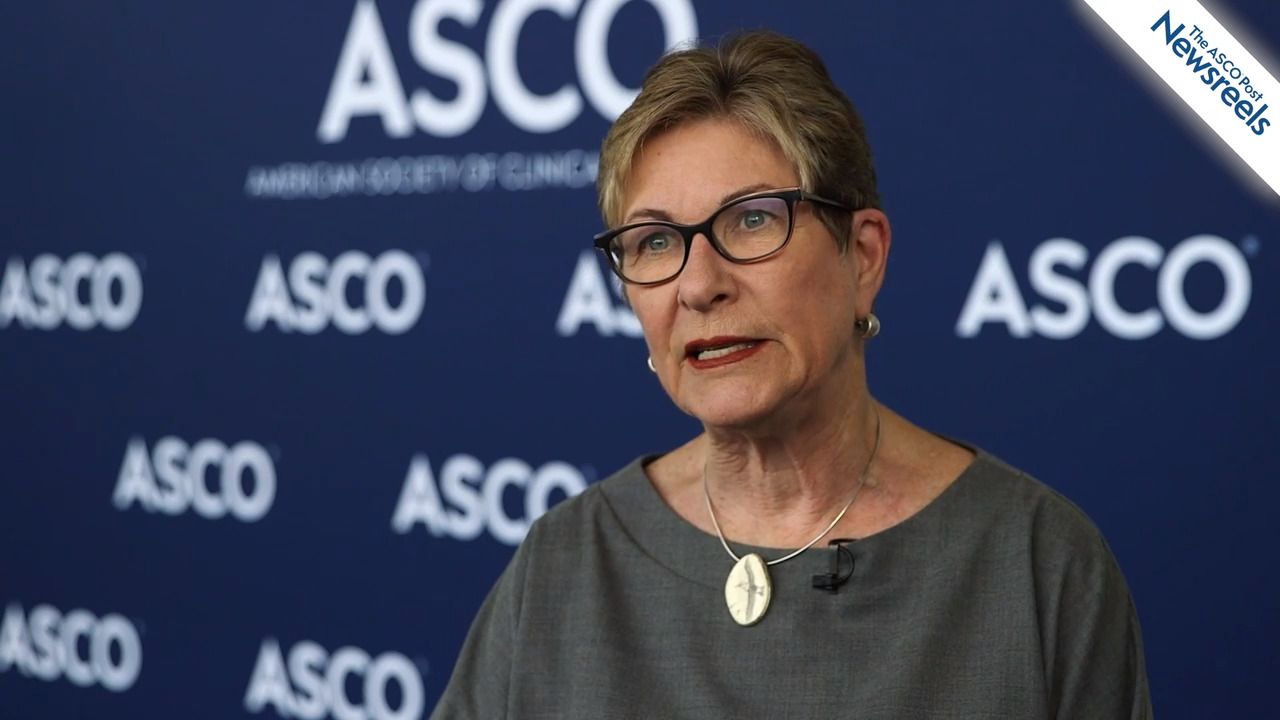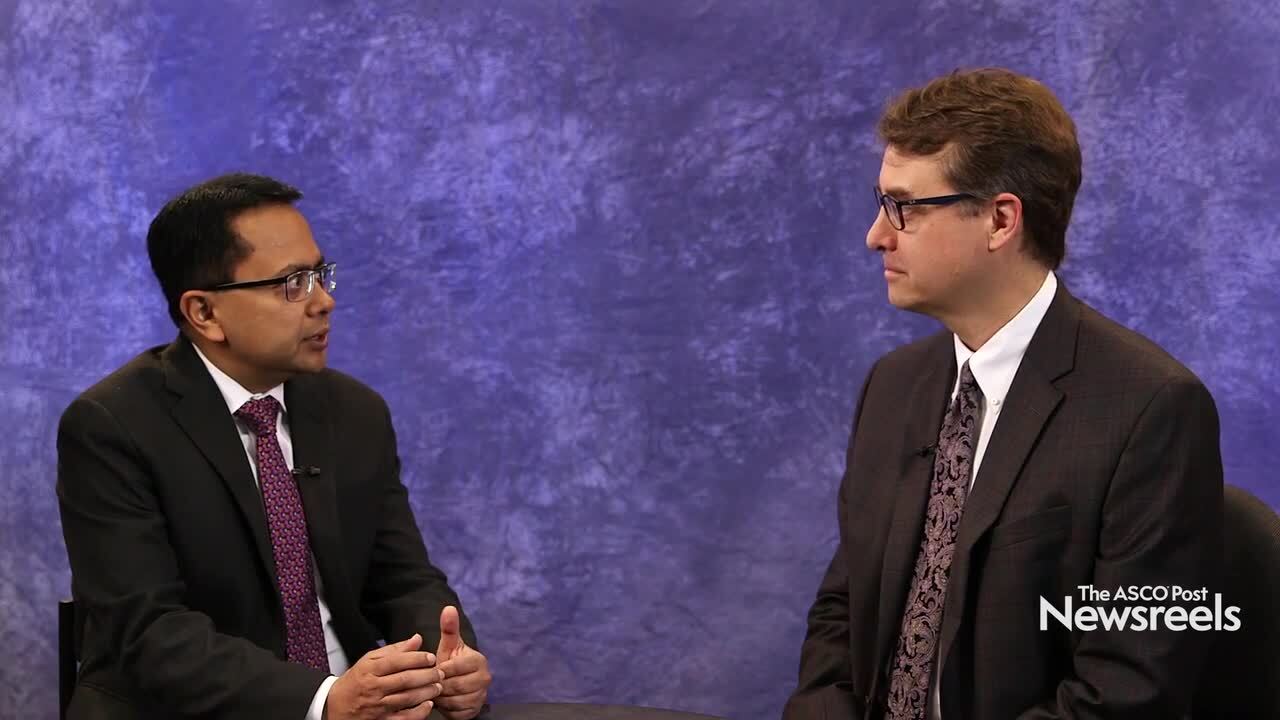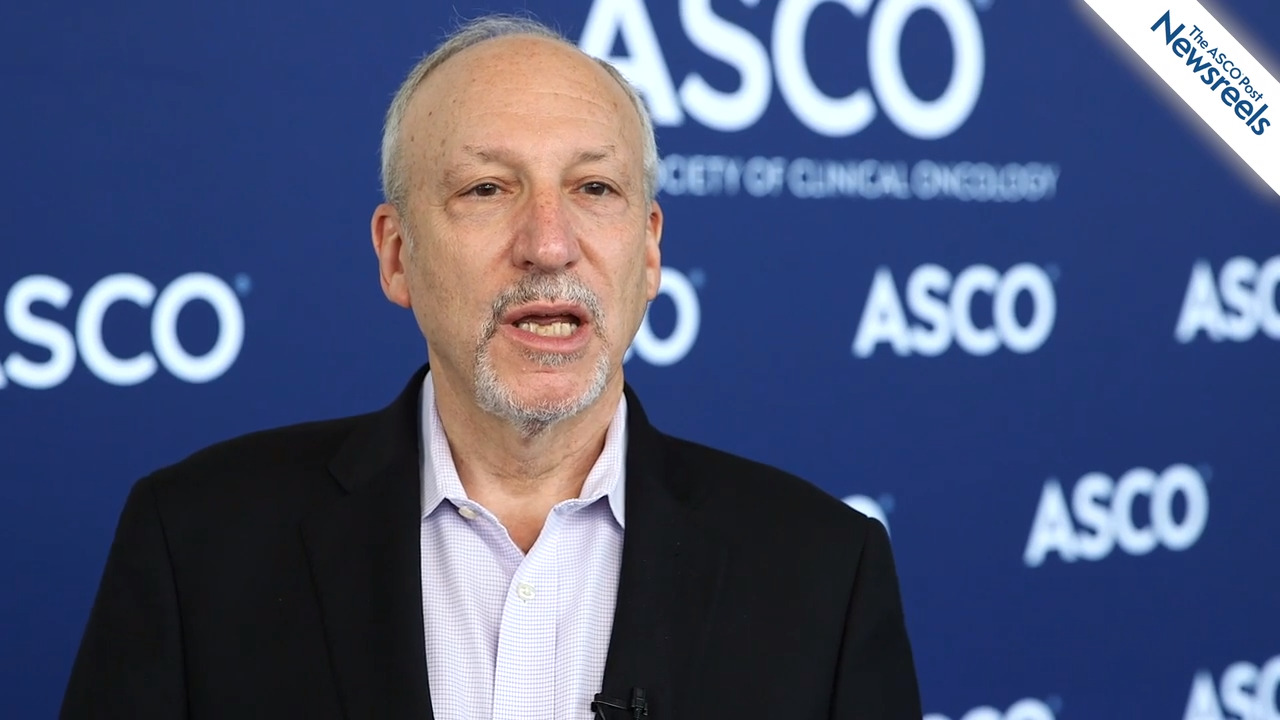Suresh S. Ramalingam, MD, on Non–Small Cell Lung Cancer: Pemetrexed, Bevacizumab, or Both as Maintenance Therapy
2019 ASCO Annual Meeting
Suresh S. Ramalingam, MD, of Winship Cancer Institute, Emory University, discusses findings from the ECOG-ACRIN 5508 study, which showed that single-agent bevacizumab or pemetrexed is the optimal maintenance therapy for advanced nonsquamous NSCLC (Abstract 9002).
Paul G. Richardson, MD, of Dana-Farber Cancer Institute, discusses findings from the phase III ICARIA-MM trial showing that isatuximab, pomalidomide, and low-dose dexamethasone significantly improved progression-free survival and overall response vs pomalidomide and dexamethasone (Abstract 8004).
Toni K. Choueiri, MD, and Ziad Bakouny, MD, both of Dana-Farber Cancer Institute, discuss a retrospective review of genomically profiled patients with sarcomatoid/rhabdoid renal cell cancer who were found to have better outcomes with immune checkpoint inhibitors and to harbor mutations associated with poor prognosis (Abstract 4514).
Margaret A. Tempero, MD, discusses phase III results from the multicenter APACT trial, which showed that adjuvant nab-paclitaxel plus gemcitabine may be an option for patients who are ineligible for treatment with FOLFIRINOX (Abstract 4000).
Neeraj Agarwal, MD, of Huntsman Cancer Institute, University of Utah Health Care, and Thomas W. Flaig, MD, of the University of Colorado, discuss phase II findings on a novel predictive biomarker of response to the two accepted neoadjuvant regimens for muscle-invasive bladder cancer: methotrexate/vinblastine/doxorubicin/cisplatin and gemcitabine/cisplatin (Abstract 4506).
Lee S. Schwartzberg, MD, of the West Cancer Center, reports on this past year’s progress of the ACCC initiative to speed adoption of immunotherapeutics in community practices.
